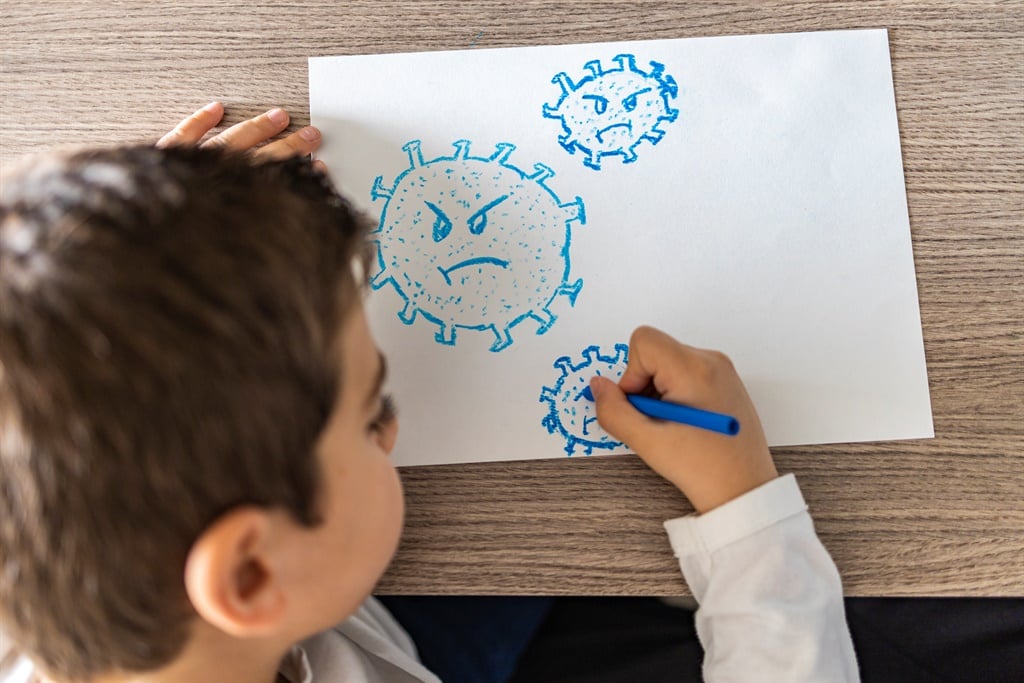


There is a lot that is still unknown about the Covid-19 coronavirus, the global pandemic first identified just over four months ago in Wuhan, Hubei Province in China.
Chief among the unknowns is why this disease has a seemingly milder clinical course in children than in adults.
And as parents wait to hear what will become of this school year from Basic Education Minister Angie Motshekga tomorrow, a major concern for most of them will be the fear of their children contracting the disease once back at school.
“The data we have from China shows that this disease is quite mild in children, and actually very few children die [from it],” epidemiologist, Professor Salim Abdool Karim, told City Press.
“So the deaths are very low in children and it’s mostly a quite uneventful clinical course. These kids get a bit sick, have a runny nose and a bit of a cough and then recover.
“The course of the disease is much different in children as opposed to adults. We don’t know definitively yet in South Africa but from the data we have we’re seeing a similar pattern to China,” he said.
So the deaths are very low in children and it’s mostly a quite uneventful clinical course. These kids get a bit sick, have a runny nose and a bit of a cough and then recover
Professor Salim Abdool Karim
In a letter published in the New England Journal of Medicine this week, researchers from Wuhan – once the epicentre of the pandemic – evaluated children infected with Covid-19 who were treated at the Wuhan Children’s Hospital.
It treats children under 16 years old.
They found that, in contrast with infected adults, most infected children appeared to have a milder clinical course.
A fever was present in only 41% of cases in children (1 391 children assessed, 171 had Covid-19) while 27% did not have any symptoms of infection or features of pneumonia.
An earlier study published in The Journal of Pediatrics last month, which examined 2 000 confirmed cases of Covid-19 in children reported to the Chinese Centre for Disease Control and Prevention, showed that as with other reports, the majority (90%) of cases were mild or moderate.
Children mostly experienced symptoms such as fever, coughing, sore throat, runny nose, sneezing and sometimes pneumonia.
Read: Extra hours, extra school day? Mixed reactions to Motshekga’s proposal set to be tabled before Cabinet
However, 6% of children developed severe illness, with symptoms such as shortness of breath and low levels of oxygen in body tissues.
Data coming out of the US, published by the Centers for Disease Control and Prevention earlier this month, also followed the same pattern.
The US researchers added a caveat that although most cases reported among children to date had not been severe, doctors still had to maintain a high index of suspicion for Covid-19 in children and monitor progression of illness, particularly among infants.
They also stressed that social distancing, and everyday preventative behaviours such as hand washing, remained important for patients of all ages.
When kids go back to school, they’re going to pick it [Covid-19] up. I mean, it’s a highly infectious virus and it will spread, but they won’t be worse for it
Professor Shabir Madhi, Wits University vaccinologist
This was because even though they may have less serious illness or may not have symptoms at all, they still played a role in disease transmission.
Wits University vaccinologist, Professor Shabir Madhi, said: “Children have the same infection risk. Irrespective of whether it’s a child or an adult, it’s the same – about 6% to 8% risk – from a close contact. The only difference is that children don’t often progress to the severe development of disease.
“We actually don’t understand why children are somewhat protected from severe disease, but we do understand why someone that smokes for instance, is at risk for severe disease,” Madhi said.
On whether parents should be concerned about their children returning to school, Karim said: “When kids go back to school, they’re going to pick it [Covid-19] up. I mean, it’s a highly infectious virus and it will spread, but they won’t be worse for it.
“But the problem comes about when they go home and want to hug their granny or grandpa – that’s the problem. So we’re going to have to do something to protect the elderly who are at high risk.”

